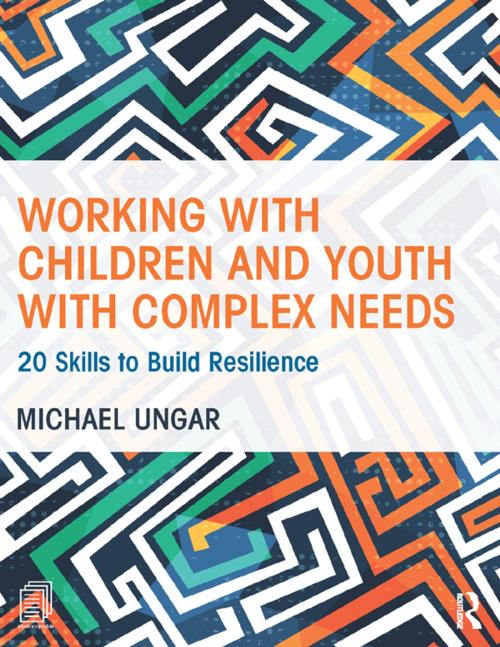Working with Children and Youth with Complex Needs
20 Skills to Build Resilience
Nonfiction, Health & Well Being, Psychology, Child & Adolescent, Child Psychology, Mental Health| Author: | Michael Ungar | ISBN: | 9781317626701 |
| Publisher: | Taylor and Francis | Publication: | September 25, 2014 |
| Imprint: | Routledge | Language: | English |
| Author: | Michael Ungar |
| ISBN: | 9781317626701 |
| Publisher: | Taylor and Francis |
| Publication: | September 25, 2014 |
| Imprint: | Routledge |
| Language: | English |
Working with Children and Youth with Complex Needs provides a detailed description of techniques and rich stories of how social workers, psychologists, counselors, and child and youth care workers can help young people become more resilient. With ample case studies and fascinating explanations of research, Dr. Ungar shows why we need to work just as hard changing the environments that surround children as we do changing children themselves. Building on lessons learned from clinical, community and residential settings, Dr. Ungar discusses 20 skills that can enhance the effectiveness of frontline mental health services. Along with descriptions of the skills necessary to talk with clients about the factors that put their mental health at risk, Working with Children and Youth with Complex Needs also presents systemic practices clinicians can use in their everyday work. Engaging with children’s extended family, addressing issues of community violence, racism and homophobia, and helping parents and teachers understand children’s maladaptive coping strategies as sometimes necessary are among the many practical strategies that are discussed which clinicians can use to enhance and sustain the therapeutic value of their work.
Working with Children and Youth with Complex Needs provides a detailed description of techniques and rich stories of how social workers, psychologists, counselors, and child and youth care workers can help young people become more resilient. With ample case studies and fascinating explanations of research, Dr. Ungar shows why we need to work just as hard changing the environments that surround children as we do changing children themselves. Building on lessons learned from clinical, community and residential settings, Dr. Ungar discusses 20 skills that can enhance the effectiveness of frontline mental health services. Along with descriptions of the skills necessary to talk with clients about the factors that put their mental health at risk, Working with Children and Youth with Complex Needs also presents systemic practices clinicians can use in their everyday work. Engaging with children’s extended family, addressing issues of community violence, racism and homophobia, and helping parents and teachers understand children’s maladaptive coping strategies as sometimes necessary are among the many practical strategies that are discussed which clinicians can use to enhance and sustain the therapeutic value of their work.















